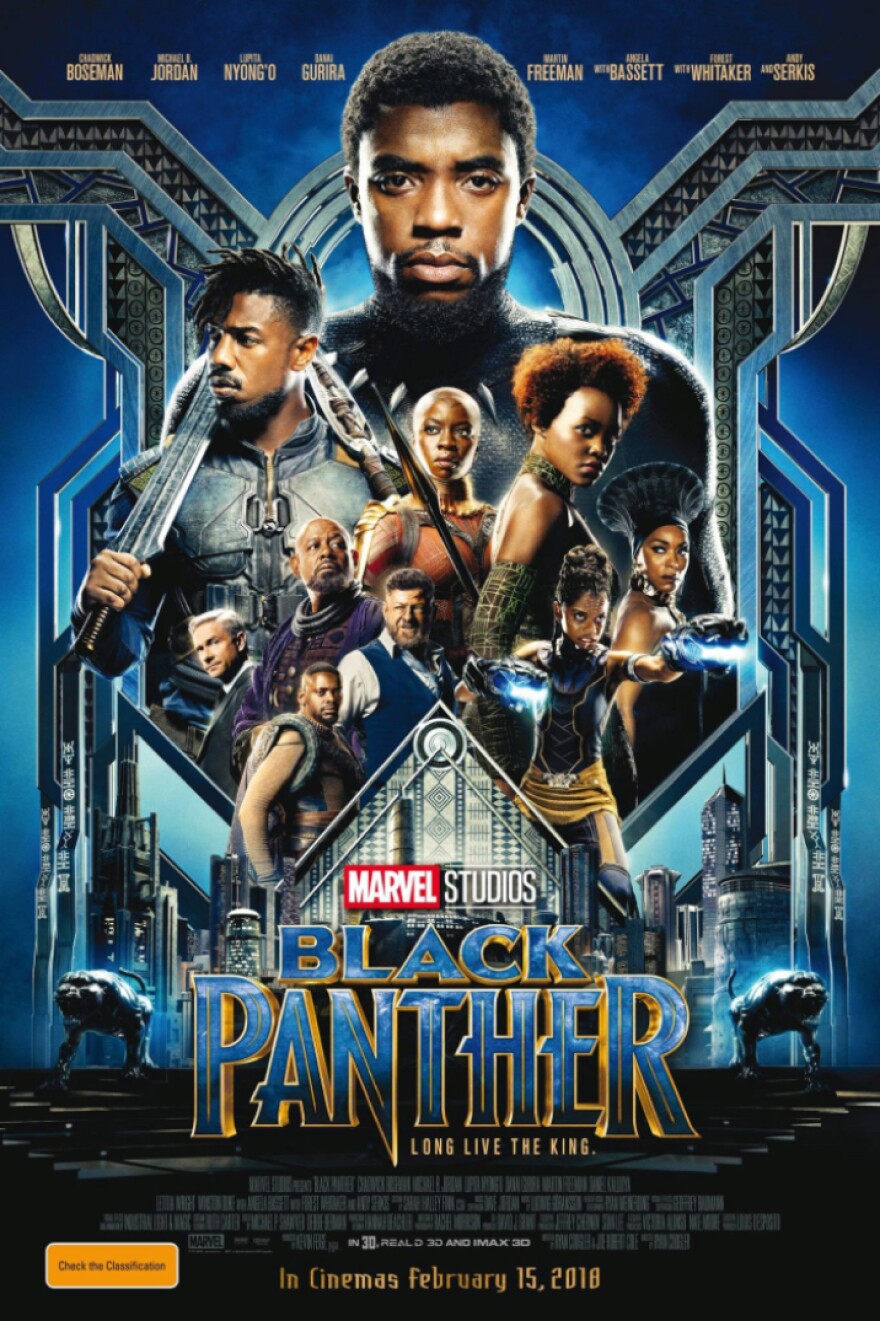The good guys, the bad guys, the good women, the bad women and the missing link in the form of a long, lost son who lays claim to the throne of the fictional, all black Central African, Brigadoon-style republic of Wakanda, are all black.
An all black super hero movie? That’s great—if you’re 13. It’s even great if you’re 8 and have figured out how to sneak into a PG-13 film. And no review should tamper with how those age groups see the film. In fact, I’d say it will do any and all kids good to see Black Panther.
It’s set in an all Black world where leadership is Black, where Black women are strong, only some of them are bald, where the question of the legitimacy of leadership is on the table for Black royalty to decide, but which also deeply addresses the idea of family.
Black Panther overall shows what the world looks like when power, as well as population, looks like you, if you happen to be Black, particularly if you are a kid, or what any nation looks like to itself. Kids of any color get that.
In Coogler’s hands, Black Panther means to be more than fun. The question is what has Coogler done with it? His first film, Fruitvale, was about the last day in the life of a young black man as he lands on the platform of the Fruitvale Bart station in front of a San Francisco cop who sees what he wants to see on the last day of the year.
It won the 2013 Sundance Film festival, where I saw it at Robert Redford’s intimate Sundance lab screening room. You can’t imagine how exciting it was to see Coogler afterwards up close and personal, a young filmmaker at 27 breathless at what was coming at him—a trip to that year’s Cannes film festival, plus adulation from every corner, a decent indie gross for the film, which was renamed Fruitvale Station. And it set up Coogler’s career.
He revived the ring weary Rocky franchise with Creed in 2015, taking his Fruitvale lead Michael B. Jordan and turning him into the son of Apollo Creed, Rocky’s fiercest heavyweight foe, to be trained by an aging Rocky Balboa years after Creed’s death.
That led directly to Black Panther, which starts in Coogler’s native Oakland in 1992, and while I’d have preferred a film about the real Black Panthers, Coogler has taken on the task of reversing the lobotomy that Marvel comics has given the film industry by building on the Black Panther crime fighter Marvel introduced in Captain America: Civil War two years ago.
Now we stare transfixed at beautiful all Black characters -- no white Victoria’s Secret models need apply--in Wakanda, a nation divided over the question of splendid isolationism in its closed off technologically superior world, or interventionism to benefit all at the expense of Wakanda’s invisibility.
You can call it the Ebony Age of great Black actors, including Chadwick Boseman from turns as Jackie Robinson in 42 and James Brown in Get On Up, the aforementioned Michael B. Jordan, Lupita Nyong'o from 12 Years a Slave, Daniel Kaluuya from this year’s get-them-before-they-get-you race thriller Get Out, Letitia Wright as the Panther’s baby sister and Bond-style gadget girl, Forest Whitaker as yoda-mentor, Andy Serkis as Ulysses Klaue the white outlaw, Marty Freeman as a 98 lb dripping wet white CIA agent, Isaach de Bankole, even Angela Bassett as the old queen mum and Stan Lee himself, the man who made Marvel and wrecked Hollywood, hiding in the background. But…. here’s what an all-Black Marvel action hero film sounds like:
Film clip heard here.
Well… you know.. it sounds a lot like every other fight between Marvel good and bad guys with an extra girl thrown in barefoot at the wheel. True, they speak in a South African English, which elevates the Bond-style banter into African royalty speak, and everyone knows how to rumble. Regardless of how far the critical establishment falls all over itself to pronounce Black Panther a masterpiece, it’s not. Unless you’re 15, or maybe 8, and have figured out how to sneak into a PG-13 movie. Then it’s a lot of fun. Even if you’re only 8 on the inside.
Click above to hear Harlan Jacobson's review of Black Panther.




